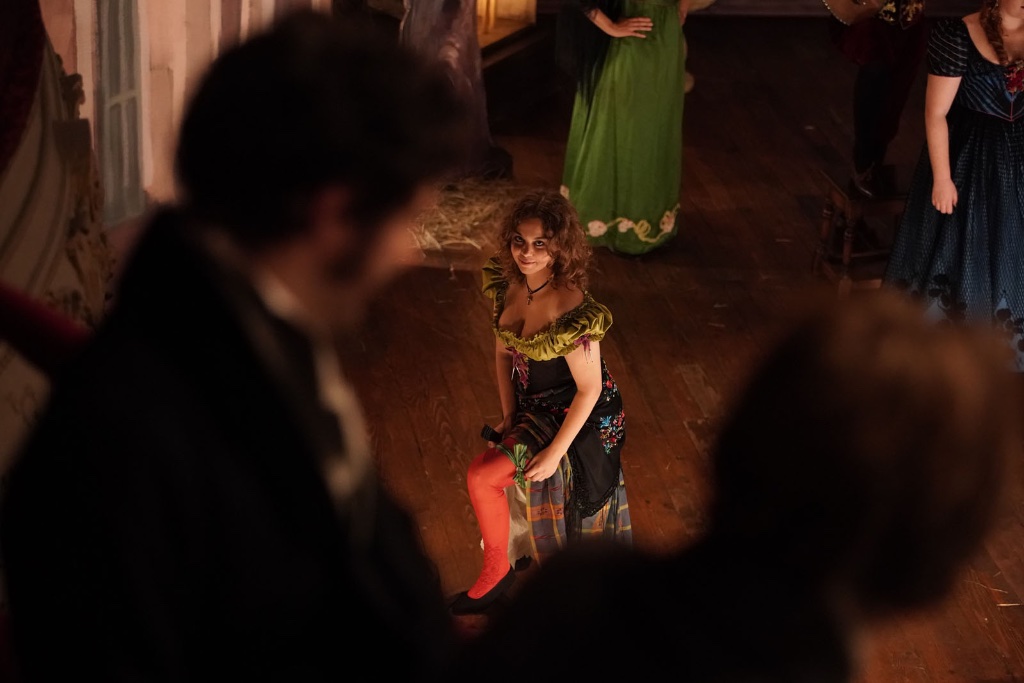Adapting the sprawling novels of Honoré de Balzac (1799-1850) for the screen is never a simple process, and from all accounts director Xavier Giannoli has been working on the screenplay for Illusions Perdues (Lost Illusions) for a number of years. Giannoli’s careful preparation pays off triumphantly, as he has produced a vivid, compellingly acted and hugely enjoyable portrait of life in France during the July Monarchy (which started in July 1830 and ended in 1848).
Balzac’s novel of that name, which forms part of the huge sequence of novels known as La Comédie Humaine, consists of three parts and was written between 1837 and ’43. It follows the changing fortunes of a young poet, Lucien Chardon, who leaves his native Angoulême to seek literary fame in Paris, changing his surname to that of his impoverished aristocratic mother’s family, de Rubempré.
To keep the movie at a just-manageable two-and-a-half hours, Giannoli wisely chooses to focus on a small portion of Balzac’s Part I, set in Angoulême and following Lucien’s affair with the older married noblewoman Madame de Bargeton, and most of Part II, when Lucien moves to Paris. As the title of the novel/film anticipates, the idealistic Lucien will find many of his dreams shattered by the cynical reality of life in the literary, theatrical and aristocratic circles of 19th-century Paris, but the title also encapsulates the disappointment of other people (family, patrons, colleagues) in the compromises that Lucien himself makes.
Having been abandoned by his older lover, Lucien soon puts his literary ambitions on hold by embracing the considerably more lucrative world of journalism, first joining the anti-monarchist liberal press before, in his hopes of becoming an accepted part of high society, betraying his former colleagues and switching to the monarchist side.
It is difficult not to draw parallels between that particular time in Paris, when fake news reigned, and more recent times. Reviews of literature and plays are sold for the highest price, regardless of inherent merit, and Lucien quickly overcomes his initial misgivings and writes savage reviews of works that he has often not even read. The journalists, who fraternize with actresses from the boulevard theaters who sustain themselves through prostitution, sell their talents as readily as the women. The film depicts these worlds with enormous panache (although recurring images of spilled ink could have been used more sparingly). Anyone interested in learning more about Balzac’s depiction of journalism, by the way, should read Edmund Birch’s excellent Fictions of the Press in Nineteenth-Century France (2018).
Much of the latter part of the film concerns Lucien’s affair with one of the actresses, Coralie, and his attempt to buy rave reviews for her performance (from professional cheerleaders in the audience and from the written press) as the lead role in Jean Racine’s play Bérénice.
Giannoli has assembled an extraordinary cast of actors, all of them on top form. Benjamin Voisin (who starred in François Ozon’s charming if slight Summer of 85) is exceptional as Lucien, portraying hardened cynicism as persuasively as his initial youthful optimism. Cécile de France is all the more touching for her understated performance as Louise de Barbaton, Lucien’s older lover, and her scenes with the snobbish Marquise d’Espard (deliciously played by Jeanne Balibar) are particularly delightful.
Two sides of Lucien’s personality are brought out by two men who play an important part in his life: the dissolute journalist Étienne Lousteau (interpreted with sleazy relish by Vincent Lacoste) and the high-minded writer Nathan d’Anastazio (who, somewhat surprisingly, is acted by Canadian film director Xavier Dolan). In addition to Salomé Dewaels, who pulls off the difficult task of being convincing as an unconvincing actress in the role of Bérénice, mention must be made of Gérard Dépardieu, who steals every scene he is in (and chews up most of the scenery in them) as the illiterate book editor Dauriat.
If you are not a fan of costume dramas, Illusions Perdues may be the movie that changes your mind. Expect it also to lead the way in nominations for the Césars (the French Oscars). And it is sure to find great success internationally.
Nick Hammond’s latest book, The Powers of Sound and Song in Early Modern Paris, is now available in paperback and as an e-book here and from online vendors.
Favorite
